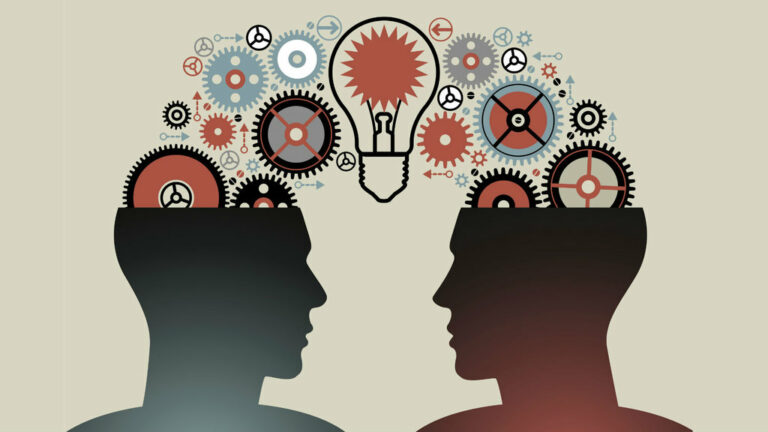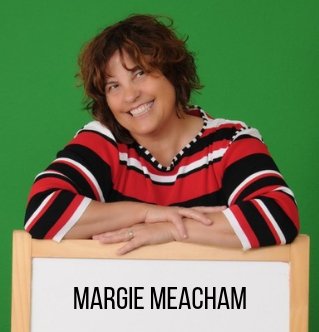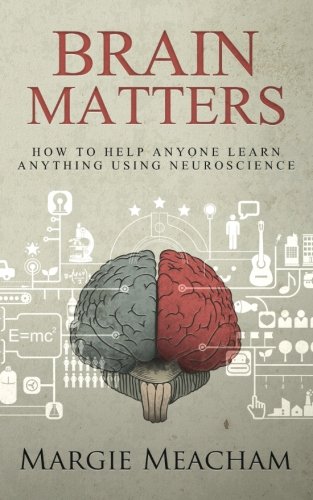What if you could read other people’s minds?
In Essentials of Brain-Based Learning, you will learn how the brain receives, encodes, and retrieves information to construct knowledge, and use these insights to improve your learning programs and gain measurable results.
Interview With Margie Meacham
Learning consultant Margie Meacham (aka 'The Brain Lady') teaches people how to design and deliver training that is compelling, memorable and immediately useful by applying the latest discoveries from the converging fields of learning science. The author of "Brain Matters: How to help anyone learn anything using neuroscience" believes that if you understand how the brain works you can become a better teacher, trainer, leader, spouse or parent and have more fun doing it.
Margie is the Chief Freedom Officer of Learningtogo and hosts a Top Ten podcast on the science of learning. She is a recipient of the 100 Most Innovative in Learning award and a frequent keynote speaker at industry conferences. She teaches the ATD online course, Essentials of Brain-Based Learning. You can learn more about Margie on her website at www.learningtogo.info, or connect with her on LinkedIn and Twitter.
Q & A
What first sparked your interest in how the brain works?
When I was a little girl, I had a terrible time learning how to read. I struggled with handwriting, spelling, math, all were difficult for me. It was only when I was studying to become a teacher in college that I realized I'm dyslexic. I decided that my mission in life should be to understand the brain and help everyone learn.
What would you say have been the most significant developments within the field of neuroscience since your professional interest in the subject began?
The neurosciences represent a huge field, so I'm focused on educational neuroscience - understanding how we learn and change behavior. In that area, I think the most significant discoveries is one of the first - neuroplasticity. Understanding that your brain is physically rewiring itself every second tells you that it is always possible to change, that there is always time to learn new skills and become the person you want to be. It can be an inspiring and empowering way to view the world.
What aspects of brain-based learning interest you the most?
I'm very interested in the science of attention, and how our choices determine what we learn. Teaching people how to harness their brain can help them learn faster, retain key information longer, and make more connections between different things that they've learned. The first step is to choose to learn. It makes all the difference.
Could you tell us something about your book 'Brain Matters'?
Let's think about it this way. If you had the chance to be one of the first people to land on Mars, would you take it? We're living in an exciting time, when the mysteries of the brain are revealing themselves through science. In my book, Brain Matters: How to help anyone learn anything using neuroscience, I write about simple, practical things we can do to apply neuroscience to enhance our everyday lives. With about 100 billion neurons, each inter-connected to 30,000 other neurons, the human brain is the complex thing we know of in the universe. So, we haven't even scratched the surface of understanding. But we have learned is already changing the way we work and live. The book gives you a peak into some of the most significant advances in neuroscience and relates them to everyday life.
Which areas of psychology have you found to be the most informative as regards the science of learning?
I think it's important to recognize that neuroscience and psychology are both studying the same thing - human behavior. As a matter of fact, psychologists are beginning to recognize that insights about the brain can help them diagnose and treat many psychological conditions. We often find validation in the "hard science" that is based in biology, chemistry and physics, when we apply it to the study of human behavior. Many things that were first discovered by psychology are now supported by neuroscience. So, we're seeing an extension of, and to some extent, a convergence of the two disciplines.
Could you share some of your insights on the growing use of Artificial Intelligence (AI) in learning design.
In much the same way, we're seeing a merging of the quest for Artificial Intelligence with neuroscience. The scientists who are studying the brain increasingly rely on AI programs to help analyze the huge data sets related to the brain. Many of the most significant accomplishments in neuroscience would not have been possible without the contribution of AI.
In a similar manner, the more we understand about natural neural networks, the closer we get to knowing how to construct one. It's an interesting partnership that seems to be getting deeper and more circular over time. By that I mean that AI helps us study the brain, neuroscience helps us build better AI, and those AIs help us get even better at studying the brain. It's a powerful combination.
What are you working on right now that has you most excited?
I'm partnering with several educational psychologist and educational neuroscience experts to build a series of online courses to take some of these discoveries to everyday people, so that they can enhance their daily lives. It's really rewarding to think that I can play a part in helping people become better leaders, parents, students, and overall human beings, just by sharing what I've learned.
Connect With Margie Meacham
Visit Margie Meacham's Website
Follow Margie Meacham on Twitter
Follow Margie Meacham on LinkedIn
know someone who would be interested in this Q & A with Margie Meacham? Share this page with them.
Go Back To The Psychology Expert Interviews Page
Go From Margie Meacham's Q & A Back To The Home Page





New! Comments
Have your say about what you just read! Leave me a comment in the box below.